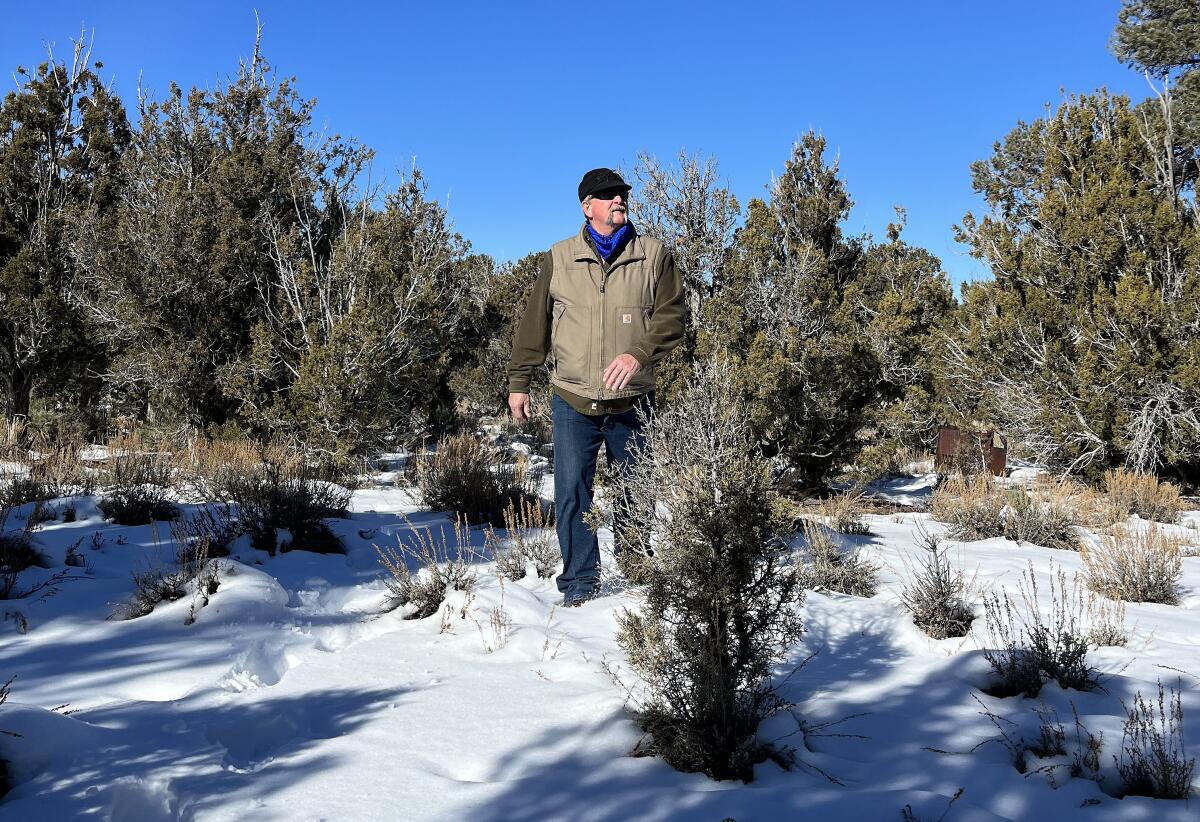Letters to the Editor: Cutting down pinyons and junipers for renewable energy makes no sense

To the editor: The Times reports that ranchers and federal land managers throughout the American Southwest have come to regard the pinyon-juniper woodlands as a highly flammable and invasive scourge. There is a proposal in Nevada to use the wood from these trees as a “renewable” energy source.
The U.S. Bureau of Land Management, which is working on the proposal, is colloquially known as the “Bureau of Livestock and Mining.” So, it’s not too surprising that the agency would favor this project to convert the wood into methanol.
However, calling pinyon-juniper woodlands an invasive species is disingenuous.
As the climate changes, the range of all affected species tends to change. The pinyon-juniper woodlands could no longer stand the summer temperatures at lower elevations. As the climate warms, they have established at higher elevations.
This is not the classic definition of an invasive species, which are typically brought to nonnative habitats by humans. The pinyon-juniper woodlands are just trying to survive like any other species would.
Jim Rueff, Fountain Valley
..
To the editor: As the article notes, the pinyon-juniper woodlands have been storing carbon for thousands of years. This intricate ecosystem, which also supports much wildlife, is already vulnerable to the climate crisis, and using these trees for biofuel would only make it more vulnerable.
Going ahead with this project will have detrimental impacts on our fight against climate change. We should be protecting these healthy forests rather than cutting them down for energy — which in the process of doing so will release carbon into the atmosphere.
This project, and the scale to which it will proceed, will directly damage the environment and its biodiversity. Instead, we should protect these trees not only for current climate-change mitigation, but also for the benefit of future generations.
Heather Fergus, San Francisco
..
To the editor: The conversion of carbon-sequestering, habitat-providing trees into methanol is anything but green.
While methanol combustion produces less ancillary pollution than the burning of fossil fuels, it still produces carbon dioxide. The fact that “green” methanol’s combustion produces greenhouse gases was not mentioned anywhere in this article.
Laura Willbanks, Long Beach






